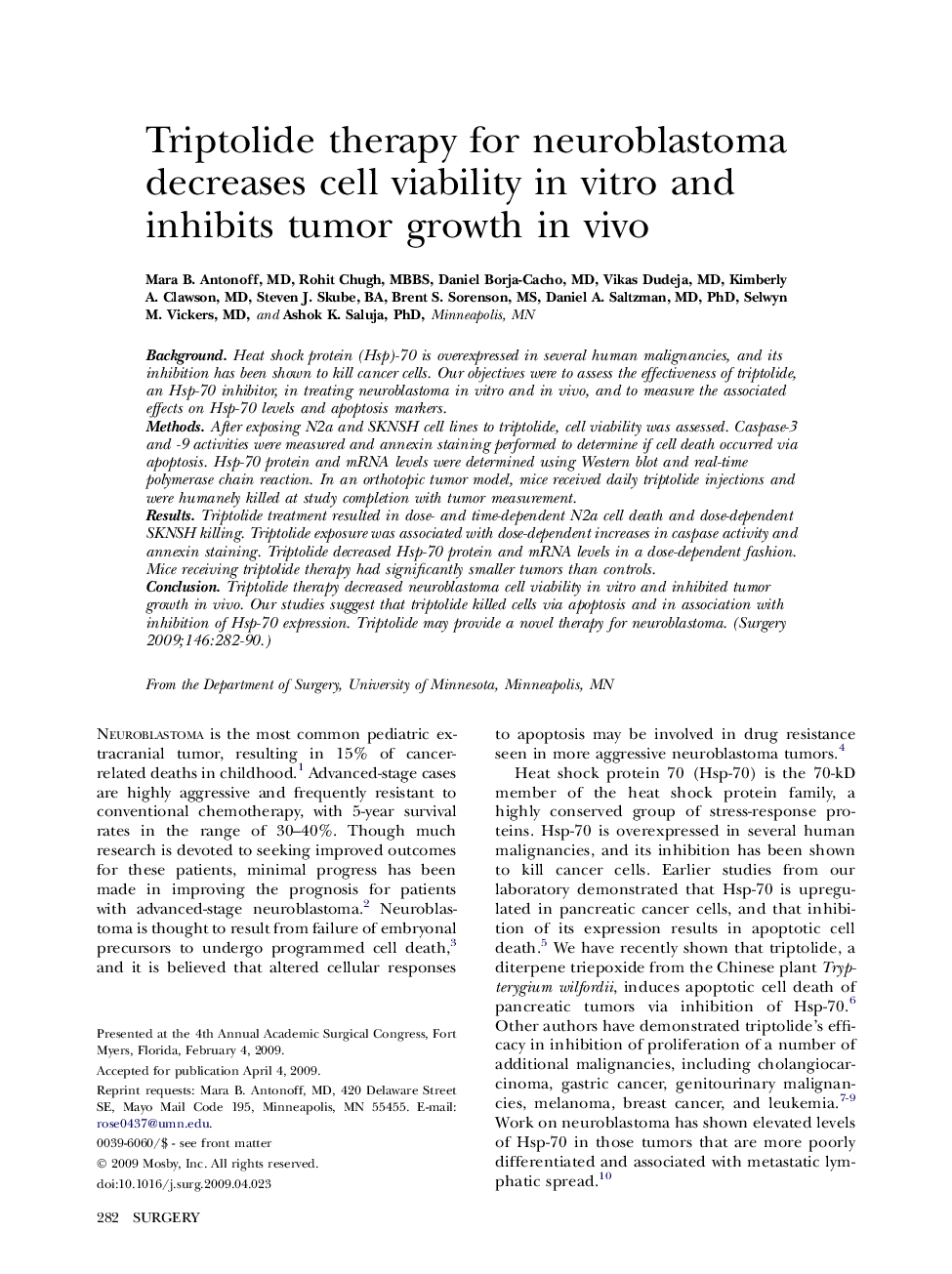| Article ID | Journal | Published Year | Pages | File Type |
|---|---|---|---|---|
| 4309394 | Surgery | 2009 | 9 Pages |
BackgroundHeat shock protein (Hsp)-70 is overexpressed in several human malignancies, and its inhibition has been shown to kill cancer cells. Our objectives were to assess the effectiveness of triptolide, an Hsp-70 inhibitor, in treating neuroblastoma in vitro and in vivo, and to measure the associated effects on Hsp-70 levels and apoptosis markers.MethodsAfter exposing N2a and SKNSH cell lines to triptolide, cell viability was assessed. Caspase-3 and -9 activities were measured and annexin staining performed to determine if cell death occurred via apoptosis. Hsp-70 protein and mRNA levels were determined using Western blot and real-time polymerase chain reaction. In an orthotopic tumor model, mice received daily triptolide injections and were humanely killed at study completion with tumor measurement.ResultsTriptolide treatment resulted in dose- and time-dependent N2a cell death and dose-dependent SKNSH killing. Triptolide exposure was associated with dose-dependent increases in caspase activity and annexin staining. Triptolide decreased Hsp-70 protein and mRNA levels in a dose-dependent fashion. Mice receiving triptolide therapy had significantly smaller tumors than controls.ConclusionTriptolide therapy decreased neuroblastoma cell viability in vitro and inhibited tumor growth in vivo. Our studies suggest that triptolide killed cells via apoptosis and in association with inhibition of Hsp-70 expression. Triptolide may provide a novel therapy for neuroblastoma.
